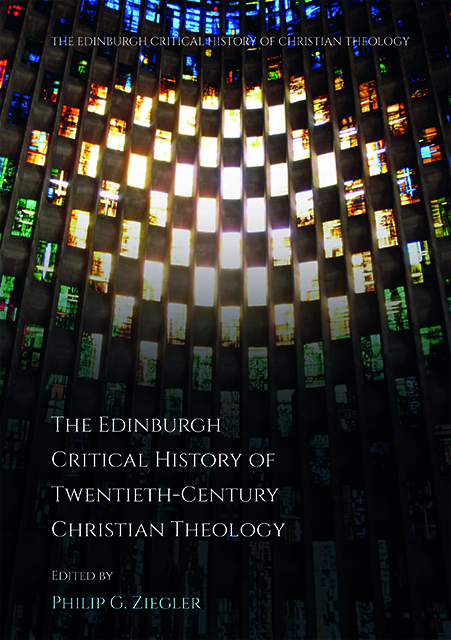Book contents
- Frontmatter
- List of Contents
- Notes on Contributors
- Editor's Introduction
- 1 Modern Theology in a Scientific, Historical Age
- 2 Tradition and Innovation
- 3 Scripture and Criticism
- 4 Reason, Method, System
- 5 Catholicism and Ecumenism
- 6 Fundamentalism and Evangelicalism
- 7 Synagogue, Sho’ah and State
- 8 Religion(s)
- 9 God
- 10 Spirit
- 11 Christ
- 12 Liberation and Freedom
- 13 The Secular – The Political: Augustine and Political Augustinianism in Twentieth-Century Political Theology
- 14 Globalisation after Empires: World Christianity and the Theological De-centring of Europe
- 15 War and Peace
- 16 Race and Black Theology
- 17 Sex and Gender
- 18 Hope
- Index
18 - Hope
Published online by Cambridge University Press: 14 July 2023
- Frontmatter
- List of Contents
- Notes on Contributors
- Editor's Introduction
- 1 Modern Theology in a Scientific, Historical Age
- 2 Tradition and Innovation
- 3 Scripture and Criticism
- 4 Reason, Method, System
- 5 Catholicism and Ecumenism
- 6 Fundamentalism and Evangelicalism
- 7 Synagogue, Sho’ah and State
- 8 Religion(s)
- 9 God
- 10 Spirit
- 11 Christ
- 12 Liberation and Freedom
- 13 The Secular – The Political: Augustine and Political Augustinianism in Twentieth-Century Political Theology
- 14 Globalisation after Empires: World Christianity and the Theological De-centring of Europe
- 15 War and Peace
- 16 Race and Black Theology
- 17 Sex and Gender
- 18 Hope
- Index
Summary
Introduction
A guiding hypothesis of this series is that theology has opened up new ways of thinking about history which enable, indeed demand, a fresh consideration both of the development of theological thought and of its shaping role in the intellectual and public sphere at large. No subject within Christian theology is more explicitly concerned with the question of how to think about history than eschatology: that is, the Christian hope for ‘the last things’. For most of Christian history, the biblical promise of Christ's Second Coming, followed by the resurrection of the dead, the Last Judgement and the advent of the heavenly Jerusalem, guided people's understanding both of their own actions and of the times they lived in. That promise had both a moral and a historical dimension. Morally, it set all actions within the purview of an omniscient judgement to come: regardless of current inequalities and deceptions, at the last the all-seeing God would weigh all deeds and judge all people equitably. Historically, the promise ordered all events within a divine drama leading through anguish to triumph: suffering, humiliation and persecution were no more than the biblically foretold birth pangs of the messianic kingdom. Throughout Christian history, religious conflicts arose from disagreements about how rightly to map biblical prophecy on to the present time: whether, for example, the pope should be understood as the vicar of Christ presiding over the thousand-year messianic reign preceding the Second Coming, or as the Antichrist beguiling the faithful. But these disputes did not touch the explanatory framework itself. The pressing religious question, in other words, was not whether the drama of life and history was plotted, but only what role each was playing in it.
The Enlightenment, challenging the reliability of revelation as a source of historical and metaphysical knowledge, inevitably changed this. After all, the last things were paradigmatically revealed knowledge. It was from the dominical sayings and actions, and from biblical (and sometimes extra-biblical) prophecy, that the divine plan of salvation and judgement was known. The Enlightenment crisis of revelation was therefore, as much as anything, a crisis of eschatology. From Kant and Schleiermacher onwards, theologians no longer felt able to rely solely on biblical testimony for their assessment of moral action or their expectation of the direction and end of history.
- Type
- Chapter
- Information
- Publisher: Edinburgh University PressPrint publication year: 2022

